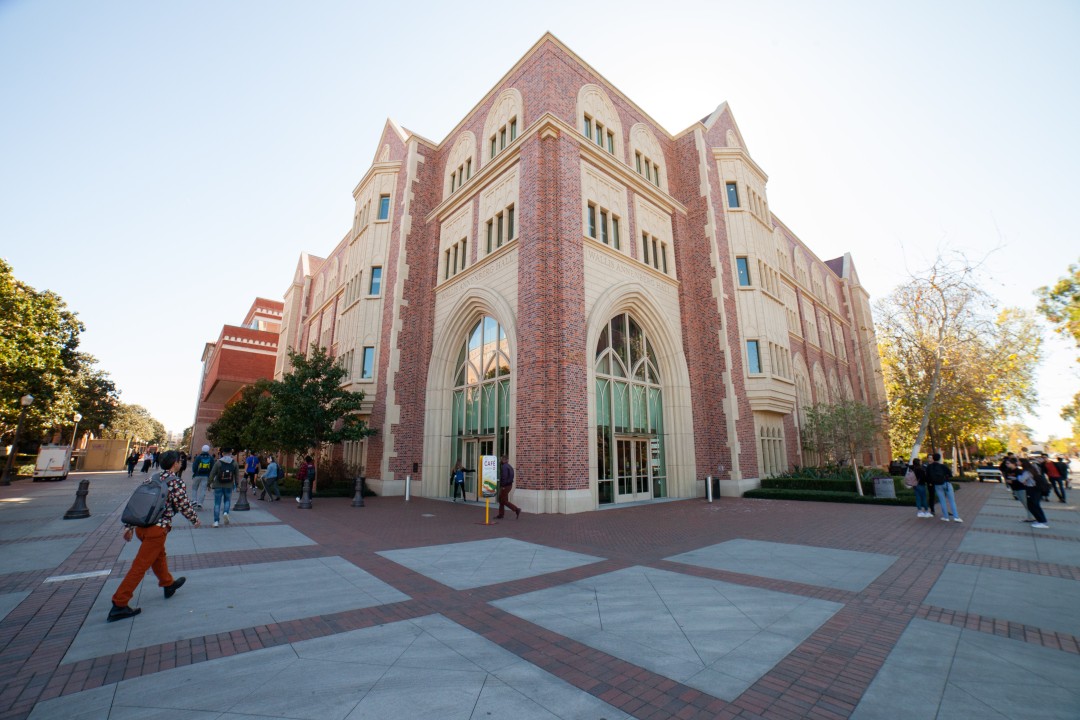
Colleges and Universities are leading the way through the COVID-19 crisis
One of the recurring themes of recent news coverage has been a series of pieces on the possible effects of COVID-19 on universities. The New York Times headlined a recent piece, “After Coronavirus, Colleges Worry: Will Students Come Back?” CNN wrote, “Colleges consider a new school year with no students on campus,” and ABC News’ Good Morning America promoted their report: “Colleges in Crisis.”
I’d like to suggest a rewrite to those headlines, one that reflects a view from the frontlines of a university. Colleges and universities are not “in crisis” — we are leading the way through a crisis. There are certainly enormous repercussions — academic, emotional, social and financial — attached to this moment, and I certainly do not intend to minimize those. In fact, we are preparing for the effects of this crisis to be severe and prolonged. However, at USC, like many universities across the country, we moved quickly to ensure we avoided a true crisis such as mass contagion among our students, faculty and staff, or mass layoffs gutting schools and departments.
Within a matter of days, USC depopulated campus to prevent the spread of the disease. At my school, USC Annenberg, we trained more than 250 faculty members and staff to use virtual tools for teaching and collaborating. We moved nearly 300 courses online for approximately 2,500 students, including those who returned home from our study abroad programs. We welcomed students who have been admitted to our nine master’s programs with a special preview day held completely online. And the newest members of our Trojan Family received their virtual acceptance letters as the Class of 2024. We did all of that within the span of just 3 weeks.
We have leapt into action to support students' financial, emotional and social needs. We are working diligently to restructure and replicate the resources that would normally be available on campus, including virtual advising sessions, internship and career development programming, seminars focused on online networking and interviewing, an online career fair, appointments with our mental and emotional health counselors, and more. Of concern to us in particular, is that students are experiencing difficulties ranging from moderate to severe as they acclimate, and we must ensure that emergency financial assistance along with counseling and other mental health resources are available to those in need.
These past few weeks have been filled with firsts, and we are scenario planning to re-engineer our business model, delivery mechanisms and pedagogical approaches for the fall. We are reaching out to connect — from a safe digital distance — with students to offer them a place to share their thoughts and concerns. We have been listening carefully and responding with very new-fangled interventions and old-fashioned empathy. And students are adapting, creating new practices and protocols to master academic topics and many of them, like our journalism students, are acquiring professional skills so necessary in this time of social distancing.
Yes, there is enormous uncertainty, and the fall semester will not look the same, but these milestones remind us that amid so much unknown, we are also experiencing remarkable moments of dedication and ingenuity. As we continue to execute our mission with determination and creativity, we are navigating the unprecedented and accomplishing the monumental.
And this isn’t just at USC or USC Annenberg. On a call this week with a consortium of leaders of communication and journalism schools across the country, I witnessed a relentless student focus, fueled by innovation. We are in fact re-inventing how we do business to make sure our students get the education they need, deserve and pay for. And we are doing it by putting their needs — starting with their health and safety — first.
I know other businesses are doing just the same thing. Is yours? If so I’d like to hear your story and I have no doubt so would others. We have a lot to learn from each other right now as we create a path forward that looks very different from the one we’ve long been following.

Exploring race, diversity and public diplomacy through action sports and popular culture
3yBeautifully stated Willow:) Our students and faculty are our Trojan Family. Your comments serve as a reminder that we will always try to do what's best for them!
Strategic Growth Specialist, Nonprofit Leader, Business Educator, Executive Coach, Author
3yThank goodness you refuse to roll over and say "dead"! This is a much needed editorial that should be required reading, and proselytizing, to the naysayers. Now, more than ever.
Freelance Journalist
3yThank you for putting students first!
GIS Analyst III at St. Johns River Water Management District
3yThank you! My son, Adrian, will be attending Annenberg in the Fall as a member of the class of 2024!
Business Development Analyst at Zoic Labs
3yLove this positive and thoughtful message. I do believe that Thornton has a little work to do to really engage the performance students - but I have full confidence that they will and acknowledge how very difficult and unprecedented this experience is for not only the students but also the faculty and staff. USC has done an admirable job thus far. Fight on!